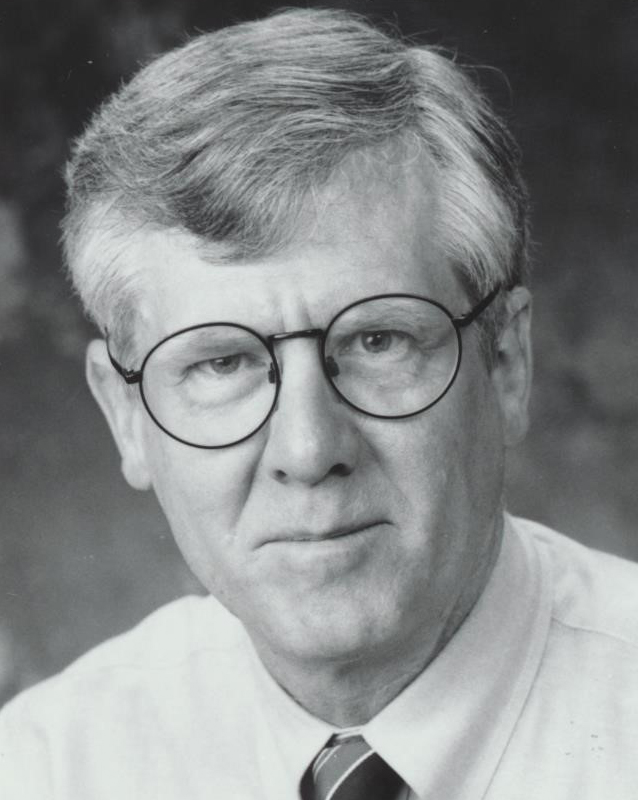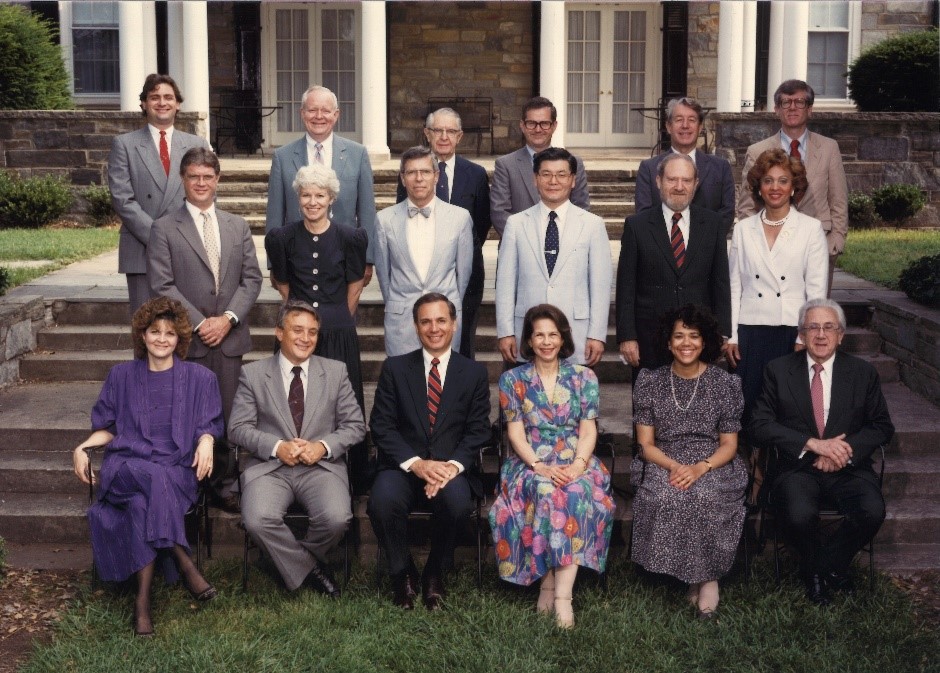
The National Institute on Deafness and Other Communication Disorders (NIDCD), part of the National Institutes of Health, extends condolences to the family, colleagues, and students of Robert Dobie, M.D., F.A.C.S., who died September 4, 2019. Dobie made significant contributions to research and clinical practice in otolaryngology (diseases of the ear, nose, throat, and related structures of the head and neck). He served as the NIDCD’s director of extramural research from 1999 to 2002. In addition, he served on the first NIDCD advisory board and on the task force to develop the institute’s inaugural research strategic plan.
Dobie’s research focused largely on the effects of noise exposure and aging on hearing health, shedding light on the high prevalence of hearing loss and the value of hearing conservation programs.
“Bob’s extraordinary breadth and depth of knowledge of otology, as well as his firm grasp of basic, clinical, and population-based research enabled him to quickly and concisely cut to the core of any scientific issue,” commented NIDCD Director Debara L. Tucci, M.D., M.S., M.B.A. “He was really one of a kind.”
Dobie earned his medical degree from Stanford University School of Medicine, where he completed a surgical internship and surgical residency. He also completed a research fellowship in auditory physiology at Louisiana State University School of Medicine's Kresge Hearing Research Laboratory (New Orleans), and a clinical fellowship in otoneurosurgery at the University Hospital Zurich (Switzerland).
Dobie served as a professor in the Department of Otolaryngology–Head and Neck Surgery at the University of Washington School of Medicine from 1975 to 1990. There, he held many leadership roles, including serving as the director of the Virginia Merrill Bloedel Hearing Research Center and the director of the Vestibular Function Laboratory in the Otolaryngology–Head and Neck Surgery Clinic. From 1990 to 1999, Dobie served as a professor and chairman of the Department of Otolaryngology–Head and Neck Surgery at the University of Texas Health Science Center, San Antonio.

Robert Dobie, M.D. (back row, far right), helped set the direction of the NIDCD even in its earliest days, serving as a member of the first NIDCD advisory board and on the task force to develop the institute’s inaugural research strategic plan.
Source: NIDCD historical photo of a meeting of the NIDCD advisory board in 1989.
In 1999, Dobie was named the NIDCD director of extramural research. During his time at the NIH, he also held clinical positions at the NIH Clinical Center in Bethesda, Maryland, and at the U.S. Department of Veterans Affairs Medical Center in Washington, D.C. He had a fruitful collaboration with the NIDCD Epidemiology and Statistics Program that continued throughout the rest of his career.
“Dr. Dobie was an enthusiastic collaborator. His counsel was among the most impactful of my career,” reflected Howard Hoffman, M.A., director of the NIDCD Epidemiology and Statistics Program. “He was committed to scientific discovery, often using humor to help audiences understand and appreciate the findings.”
Dobie left the NIDCD in 2002 and became a clinical professor of otolaryngology–head and neck surgery at the University of California, Davis. In 2008, he and his family moved back to San Antonio, where he returned to the University of Texas Health Science Center, serving as a clinical professor.
Dobie was a member and leader of many prestigious professional societies, serving as president of the Association for Research in Otolaryngology and as a senior scientific trustee at the Hearing Health Foundation. He received dozens of awards and honors for his research as well as for his leadership in teaching and mentoring, including the Lifetime Achievement Award from the National Hearing Conservation Association and the Carhart Memorial Award from the American Auditory Society.
The NIDCD joins scientists and others throughout the world in recognizing Dobie’s contributions to science and public health.

